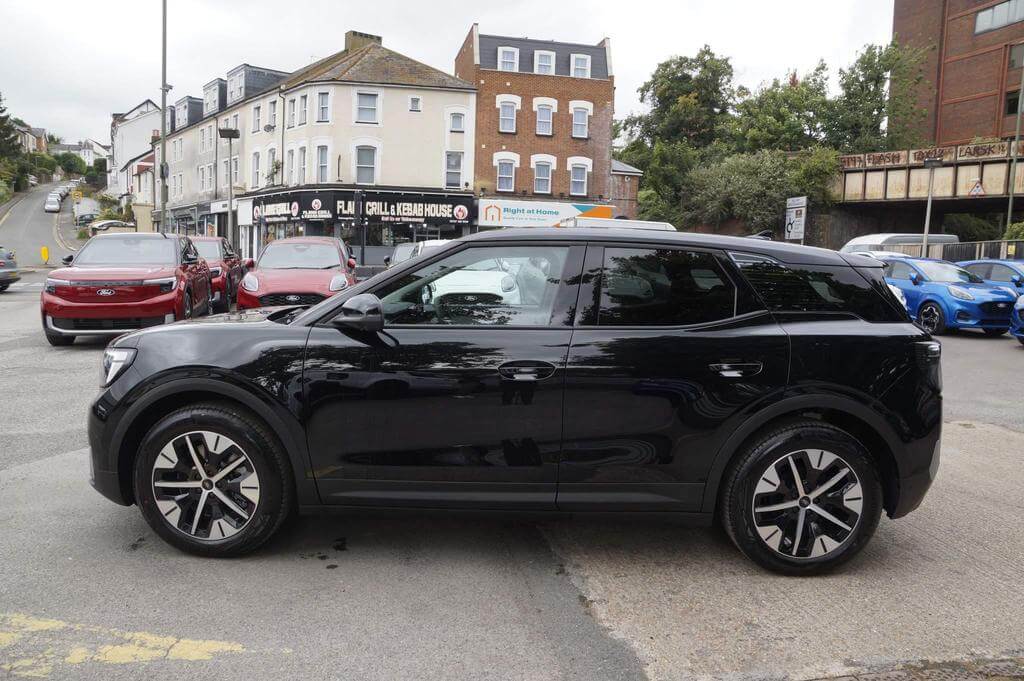
New BYD Electric Cars, Sedans and SUVs Best News
New BYD electric Cars, Sedans and SUVs I BYD UK. Yes, BYD cars are available in the UK. The company has made significant strides.
Signup for our newsletter to get notified about sales and new products. Add any text here or remove it.
[contact-form-7 id="7042" title="Newsletter Vertical"]Are Ford Explorers Good for Road Trips?When it comes to planning a road trip, the choice of vehicle can significantly impact the overall experience. Among the many options available in the SUV market, the Ford Explorer stands out as a popular choice for families and adventure-seekers alike. This article will delve into various aspects of the Ford Explorer to determine whether it is indeed a good option for road trips. We will explore its comfort, space, performance, technology features, safety ratings, fuel efficiency, and overall reliability.
Comfort and Space
One of the most critical factors when considering a vehicle for long-distance travel is comfort. The Ford Explorer offers a spacious interior that can comfortably accommodate up to seven passengers, depending on the configuration. The three-row seating arrangement provides ample legroom and headroom for all occupants, making it suitable for families or groups traveling together.
The seats are designed with long journeys in mind; they are well-cushioned and supportive. Higher trims come with additional features such as leather upholstery and heated/ventilated front seats that enhance comfort during varying weather conditions. Moreover, the second-row seats can slide forward and backward to provide extra legroom or cargo space as needed.
In terms of cargo capacity, the Ford Explorer excels with its generous storage options. With all seats in use, you still have around 18.2 cubic feet of cargo space behind the third row. If you fold down the third row, this expands to approximately 47.9 cubic feet. For those who need even more room for luggage or equipment—such as camping gear—the maximum cargo capacity reaches about 87.8 cubic feet when both rear rows are folded down.
Performance
Performance is another crucial aspect to consider when evaluating a vehicle for road trips. The Ford Explorer offers multiple engine options that cater to different driving preferences:
2.3L EcoBoost I-4 Engine: This turbocharged engine produces 300 horsepower and provides a balance between power and fuel efficiency.
3.0L EcoBoost V6 Engine: Available in higher trims like the ST and Platinum models, this engine delivers an impressive 400 horsepower while maintaining decent fuel economy.
Hybrid Option: For those looking for eco-friendly alternatives without sacrificing performance, Ford also offers a hybrid version that combines efficiency with adequate power.
The Explorer’s handling is generally responsive thanks to its advanced suspension system that absorbs bumps effectively on highways or rough terrains alike. Additionally, it comes equipped with an intelligent four-wheel-drive system that enhances traction during adverse weather conditions—making it suitable for various road trip scenarios.
Technology Features
Modern road trips often require connectivity and entertainment options to keep passengers engaged throughout long drives. The Ford Explorer does not disappoint in this regard; it comes equipped with Ford’s SYNC 3 infotainment system featuring an intuitive touchscreen interface.
Key technology features include:
Apple CarPlay and Android Auto Compatibility: These systems allow seamless integration of smartphones with the vehicle’s infotainment system.
Wi-Fi Hotspot Capability: Passengers can stay connected on-the-go by connecting their devices to a built-in Wi-Fi hotspot.
Premium Audio Systems: Higher trims offer upgraded audio systems from brands like Bang & Olufsen that provide high-quality sound—a significant advantage during long trips where music or podcasts play an essential role in enhancing mood.
Moreover, advanced navigation systems help drivers find optimal routes while avoiding traffic congestion—an invaluable feature when traveling through unfamiliar areas.
Safety Ratings
Safety is paramount when selecting a vehicle for family road trips or any long-distance travel scenario. The Ford Explorer has consistently received high safety ratings from authoritative organizations such as the National Highway Traffic Safety Administration (NHTSA) and the Insurance Institute for Highway Safety (IIHS).
Standard safety features include:
These technologies work together to minimize risks associated with highway driving by providing alerts or taking corrective actions if necessary.
In crash tests conducted by NHTSA and IIHS, the Explorer has earned top marks across various categories—demonstrating its robust build quality designed to protect occupants in case of an accident.
Fuel Efficiency
While performance is essential, fuel efficiency cannot be overlooked when considering vehicles for extended travel periods where gas expenses can accumulate quickly over time. The Ford Explorer’s fuel economy varies based on engine choice:
The base 2.3L EcoBoost engine achieves approximately 21 mpg in city driving conditions and up to 28 mpg on highways.
The more powerful 3.0L V6 engine averages around 18 mpg city/24 mpg highway.
For those opting for hybrid models, fuel efficiency improves significantly—averaging around 27 mpg combined (city/highway).
These figures indicate that regardless of which variant you choose within this lineup—the Explorer remains competitive among other SUVs regarding fuel consumption rates.
Reliability
Reliability plays an integral role in ensuring peace of mind during any journey away from home base; after all—no one wants unexpected breakdowns ruining their vacation plans! According to various automotive reviews and consumer reports focusing on long-term ownership experiences—the Ford Explorer has proven itself reliable over time due largely due its solid engineering backed by extensive warranties offered by manufacturers like Ford themselves (typically covering three years/36k miles bumper-to-bumper).
Additionally—regular maintenance schedules outlined within owner manuals help ensure longevity while minimizing potential issues down-the-line associated with wear-and-tear components commonly found within vehicles subjected frequent usage patterns typical during road trips!
 Are Ford Explorers Good for Road Trips?
Are Ford Explorers Good for Road Trips?


New BYD electric Cars, Sedans and SUVs I BYD UK. Yes, BYD cars are available in the UK. The company has made significant strides.

How Fast is Ford Going to Make an EV Explorer?